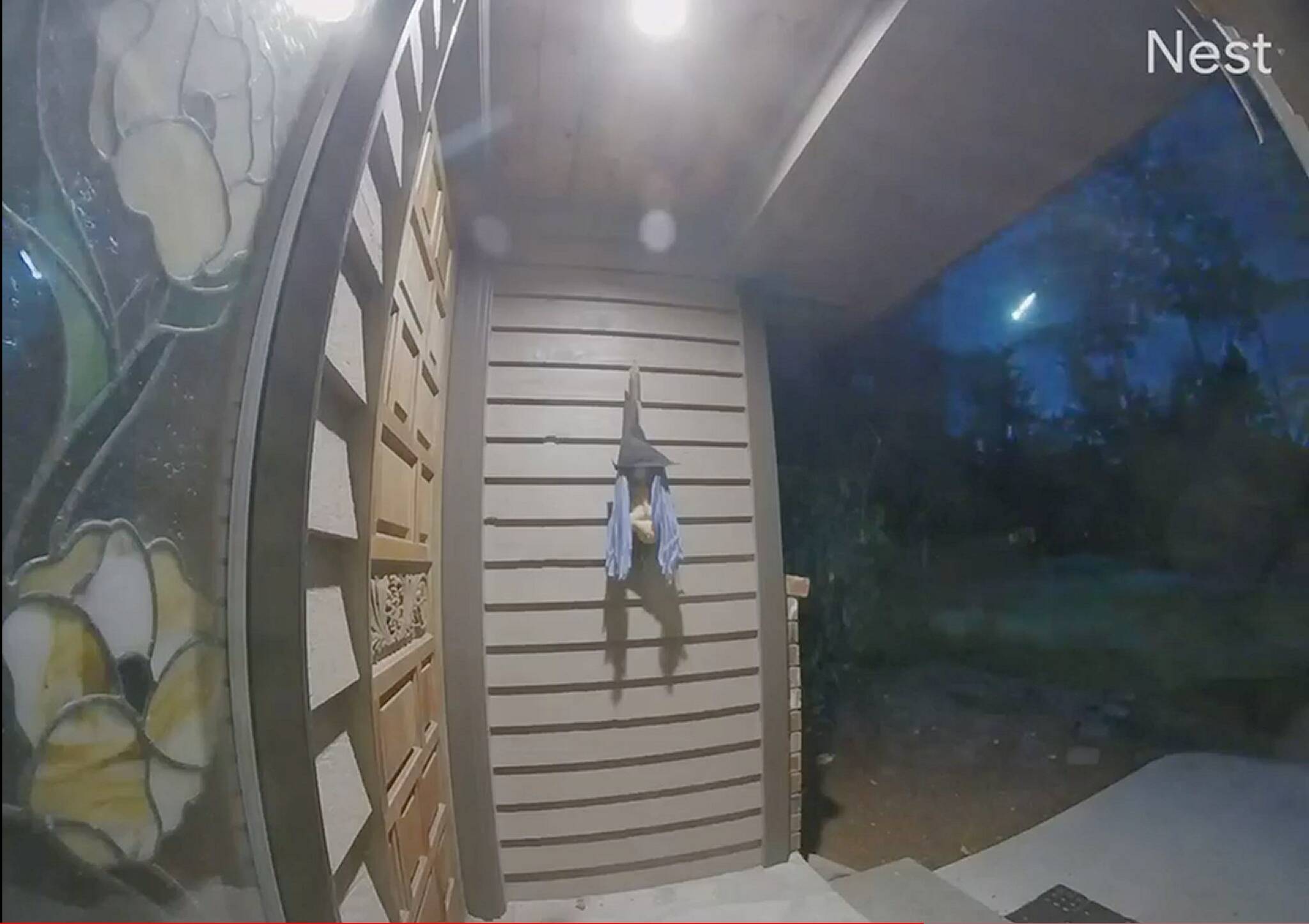A falling meteor lit up the sky above Oak Harbor last week.
Commonly known as a shooting star, the meteor was caught exploding on several doorbell security cameras, including one belonging to Sarah Peace, an Oak Harbor resident.
Peace and her husband were lying in bed that evening when they got a motion alert on their front door’s camera. At first, she thought it was just a deer or a stray cat.
“I went to look at it and all of a sudden I saw this big, bright, brilliant flash,” she said.
It lit up the whole sky for a split second — something Peace thought a shooting star couldn’t do.
“I had no idea what it was but it was incredible,” she said.
She posted the anomaly on Facebook, not expecting it to go beyond the reach of her friends. News outlets, including Seattle’s KIRO 7 News, ended up sharing the video, along with other security cameras that happened to catch the event.
Tony Edwards, who is the vice president of the Island County Astronomical Society, thinks the meteor was likely from the Orionids meteor shower, the peak of which occurs every year from Oct. 21-22. Halley’s Comet is associated with the Orionids.
“They estimate that the earth is hit with about 44 tons of meteor material on a daily basis,” Edwards said.
However, most of it never reaches the surface of the earth and burns up in the atmosphere. That’s exactly what happened in the meteor caught on camera.
“That last flash was probably its last hurrah,” Edwards said. “But most meteors are about the size of a grain of sand so they burn up pretty quickly.”
He didn’t know the size of the meteor in question. Small fragments may have survived and fallen to the earth.
If people are interested in viewing shooting stars, they should simply go out on a clear, moonless night in a dark location. Unfortunately, they are unlikely to see anything as spectacular as the meteor caught on camera, which Edwards described as a “fire ball.”
It was just a matter of luck that Peace’s doorbell camera was able to capture it. Edwards, who is an astrophotographer, captures streaks of light in his images all the time. Because of the long exposure time, he normally has no idea if they are satellites or shooting stars. He said if he had his camera out last week to catch the meteor, he definitely would have been able to tell.



